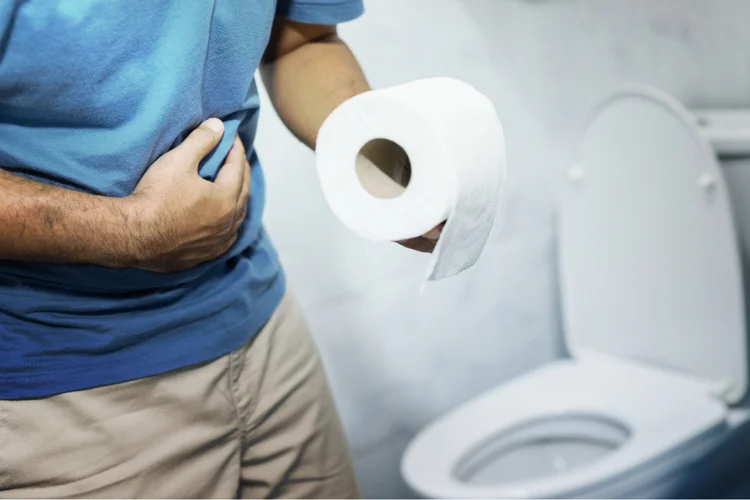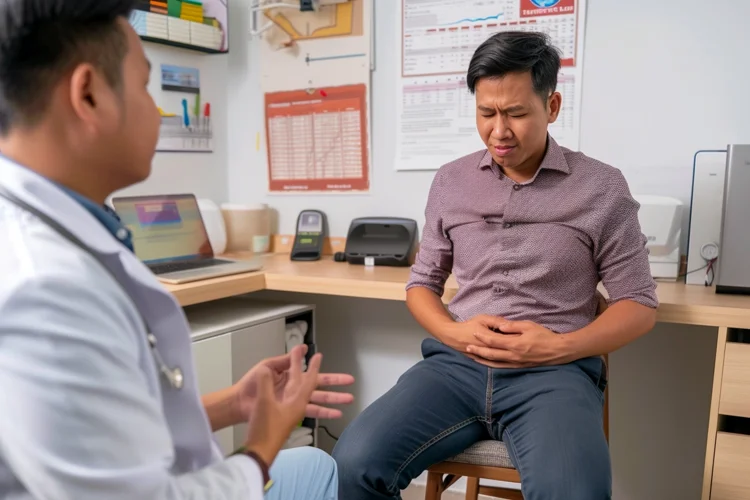Anti-Diarrhoeal Medication
Last updated: Feb 20, 2026
What Are Anti-Diarrhoeal Medications?
Anti-diarrhoeal medications are designed to relieve the symptoms of diarrhoea, a common condition characterised by loose, watery stools and increased bowel movements.
These medications can help you:
- Return to your normal daily routine more quickly
- Reduce discomfort and fatigue
- Prevent complications such as dehydration
If you are experiencing persistent or severe diarrhoea, it is advisable to consult a doctor to determine whether anti-diarrhoeal medication is appropriate for your situation and to rule out underlying causes that may require further treatment.

Causes of Diarrhoea
Diarrhoea can result from a variety of factors, including:
- Infections: Viral, bacterial, or parasitic infections, such as those caused by norovirus, E. coli, or Giardia, are common triggers.
- Dietary Factors: Consuming contaminated food or water, food intolerances (e.g., lactose intolerance), or exposure to unfamiliar bacteria or parasites while travelling can irritate the digestive system.
- Medications: Certain antibiotics, laxatives, and cancer treatments may disrupt gut bacteria or irritate the intestinal lining.
- Chronic Conditions: Disorders such as irritable bowel syndrome (IBS), inflammatory bowel disease (IBD), or coeliac disease can lead to recurring diarrhoea.
- Stress: High levels of stress or anxiety may disrupt normal bowel function, causing diarrhoea.

How Do Anti-Diarrhoeal Medications Work?
In most cases, diarrhoea resolves naturally within a few days without medical treatment. For persistent or severe cases, anti-diarrhoeal medications may help manage the condition by slowing bowel movements, giving the intestines more time to absorb water and nutrients, or firming stool consistency to reduce urgency and discomfort. Some medications also address underlying factors, such as gut inflammation or imbalances in healthy bacteria. These medications are available over-the-counter (OTC) or by prescription, depending on the severity and underlying cause.
Types of Anti-Diarrhoeal Medications
Anti-diarrhoeal medications are typically suitable for managing mild to moderate diarrhoea caused by non-infectious factors. These medications are available in various forms, including tablets, capsules, liquids, and powders, depending on the specific type and use case. Below is an overview of commonly used options:
| Medication(s) | Typically Use Cases | How It Works |
|---|---|---|
| Loperamide, Diphenoxylate | Acute diarrhoea, IBS | Slows bowel movements, allowing the intestines to absorb more water and nutrients. |
| Bismuth Subsalicylate | Mild diarrhoea, traveller’s diarrhoea | Reduces gut inflammation and combats certain diarrhoea-causing bacteria. |
| Dioctahedral Smectite | Acute diarrhoea | Binds to toxins and bacteria, protecting the intestinal lining and firming stool. |
| Probiotics | Antibiotic-associated diarrhoea, mild diarrhoea | Restores the balance of healthy gut bacteria. |
Disclaimer: This information is for general knowledge only and does not replace medical advice. Medications may have specific usage instructions, so it is important to follow them carefully. If unsure, always consult a doctor for proper diagnosis, treatment, and guidance on medication use.
Practical Tips to Manage Diarrhoea
- Stay Hydrated: Diarrhoea can lead to significant fluid loss. Maintaining adequate hydration is essential to replenish lost fluids and electrolytes.
- Eat Plain Food: Opt for plain, easily digestible foods like bananas, rice, applesauce, and toast (BRAT diet) to ease digestion and support recovery. Avoid spicy, fatty, or dairy-rich foods that may worsen symptoms.
- Consult a Doctor: If you have chronic diarrhoea, a weakened immune system, or other medical conditions, seek professional advice before using anti-diarrhoeal medications.
When to Seek Medical Attention for Diarrhoea
While most cases of diarrhoea are mild and resolve within a few days, you should seek medical attention if you experience:
- Persistent diarrhoea for more than 72 hours, even with medication.
- Signs of dehydration, such as dry mouth, sunken eyes, or reduced urination.
- Fever
- Blood or mucus in the stool.
- Diarrhoea following recent travel, especially to high-risk regions for infections.

Price of Anti-Diarrhoea Medication
At ATA Medical, we offer consultations and medications to treat diarrhoea, along with tests to diagnose other digestive and gastrointestinal conditions.
| Test | Price* |
|---|---|
| Consultation | From $49.05 |
| Medication | |
| Anti-Diarrhoea Medications | From $0.33 |
| Tests | |
| Stool Culture | $54.50 |
| Stool FEME - Ova, Parasites | $44.69 |
| Stool Occult Blood Test | $27.25 |
| Urea Breath Test | $27.25 |
| Gut Microbiome Test | $436 |
^Prices last updated on Jan 28, 2026. While every effort is made to keep pricing information up to date, please contact our team to confirm the latest rates.
If you are travelling, consider getting vaccinated for cholera, E. coli, or other relevant travel-related diseases. If you are unsure, consult a doctor to determine the vaccinations most appropriate for your destination.
Where to Get Anti-diarrhoeal Medication?
ATA Medical @ Tanjong Pagar
Nearest MRT: Tanjong Pagar Station (EW15)
Contact Number: 6223 0682
Email: hi@atamed.sg
Opening Hours:
Mon - Fri: 8:30 AM to 12:30 PM, 1:30 PM to 5:30 PM
Sat: 8:30 AM to 12:30 PM
Sun & PH: Closed
ATA Medical @ Orchard
Nearest MRT: Orchard Boulevard Station (TE13)
Contact Number: 6223 0682
Email: camden@atamed.sg
Opening Hours:
Mon - Fri: 8:30 AM to 12:30 PM, 1:30 PM to 5:30 PM
Sat: 8:30 AM to 12:30 PM
Sun & PH: Closed
ATA Medical @ Jurong
Nearest MRT: Jurong East MRT Station (NS1/EW24)
Contact Number: 6348 6292
Email: jurong@atamed.sg
Opening Hours:
Mon - Fri: 8:30 AM to 12:30 PM, 1:30 PM to 5:30 PM
Sat: 8:30 AM to 12:30 PM
Sun & PH: Closed


